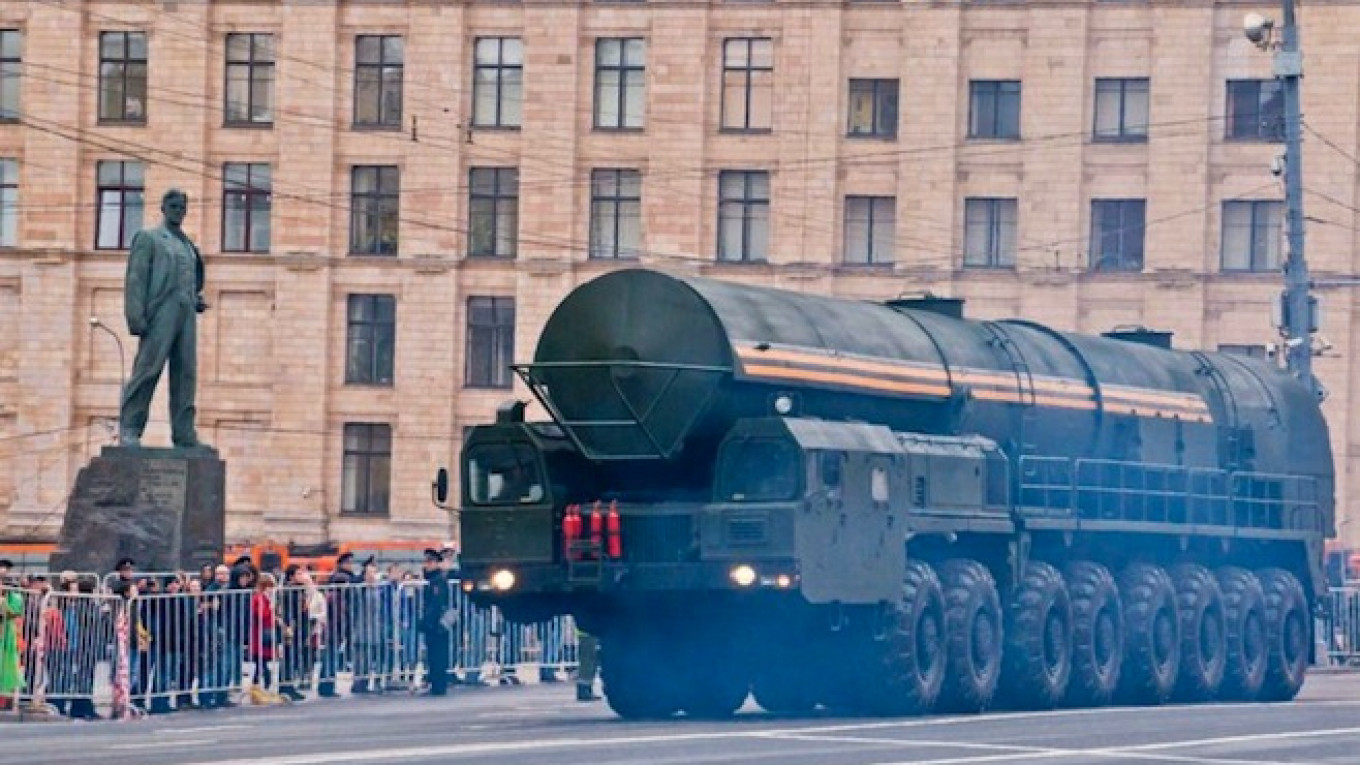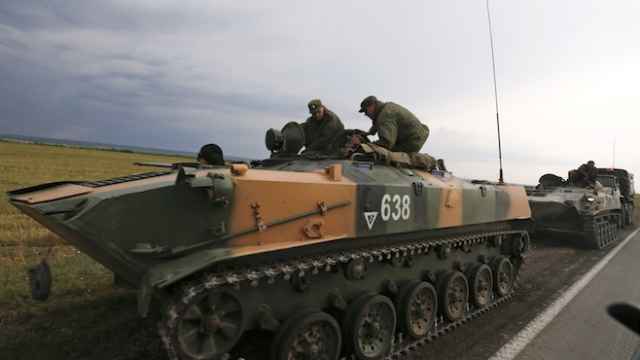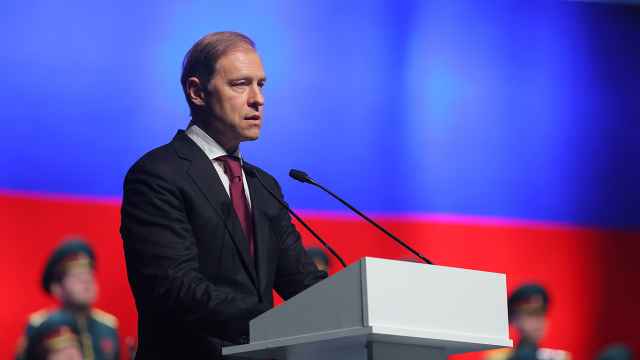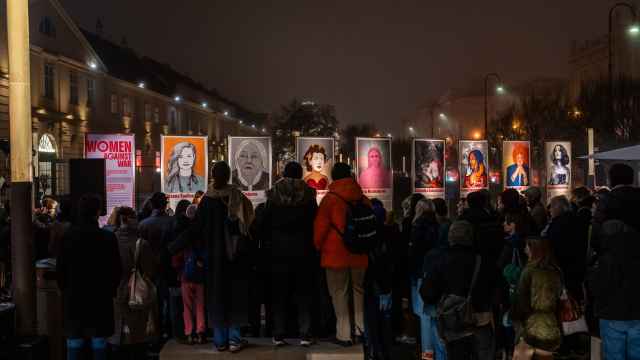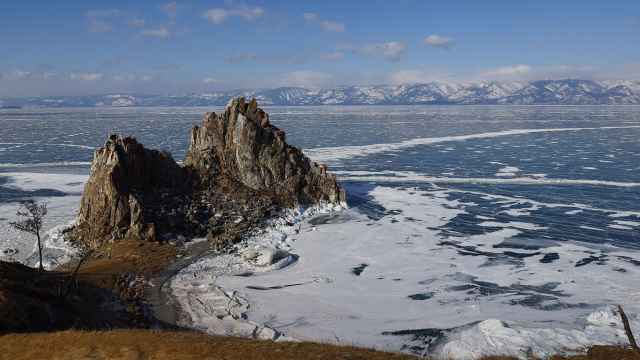A Russian general has called for Russia to revamp its military doctrine, last updated in 2010, to clearly identify the U.S. and its NATO allies as Moscow's enemy number one and spell out the conditions under which Russia would launch a preemptive nuclear strike against the 28-member military alliance, Interfax reported Wednesday.
Russia's military doctrine, a strategy document through which the government interprets military threats and crafts possible responses, is being revised in light of threats connected to the Arab Spring, the Syrian civil war and the conflict in Ukraine, the deputy chief of the Kremlin's security council told RIA Novosti on Tuesday.
But within the Defense Ministry there are voices calling for different priorities.
"First and foremost, the likely enemy of Russia should be clearly identified in this strategic document, something absent from the 2010 military doctrine. In my view, our primary enemy is the U.S. and the North Atlantic bloc," General Yury Yakubov, a senior Defense Ministry official, was quoted as saying by Interfax.
The 2010 doctrine defines NATO expansion as a threat to Russian national security and reaffirms its right to use nuclear weapons in a defensive posture, but stops far short of declaring NATO as Moscow's primary adversary and laying preemptive nuclear strike scenarios on the table, a posture unmistakably reminiscent of the Cold War.
Yakubov said the information war being waged over the crisis in Ukraine — where the West accuses Russia of arming separatists fighting the government in Kiev — and NATO's announcement that it would establish a permanent military presence in Eastern Europe have validated earlier fears that the alliance's claims of non-aggression toward Russia were insincere.
The general added that special attention should be paid to integrating the functions of the newly created Air and Space Defense Forces with Russia's land, sea and air based nuclear forces. "In addition, it is necessary to hash out the conditions under which Russia could carry out a preemptive strike with the Russian Strategic Rocket Forces," he said.
A Message from The Moscow Times:
Dear readers,
We are facing unprecedented challenges. Russia's Prosecutor General's Office has designated The Moscow Times as an "undesirable" organization, criminalizing our work and putting our staff at risk of prosecution. This follows our earlier unjust labeling as a "foreign agent."
These actions are direct attempts to silence independent journalism in Russia. The authorities claim our work "discredits the decisions of the Russian leadership." We see things differently: we strive to provide accurate, unbiased reporting on Russia.
We, the journalists of The Moscow Times, refuse to be silenced. But to continue our work, we need your help.
Your support, no matter how small, makes a world of difference. If you can, please support us monthly starting from just $2. It's quick to set up, and every contribution makes a significant impact.
By supporting The Moscow Times, you're defending open, independent journalism in the face of repression. Thank you for standing with us.
Remind me later.


